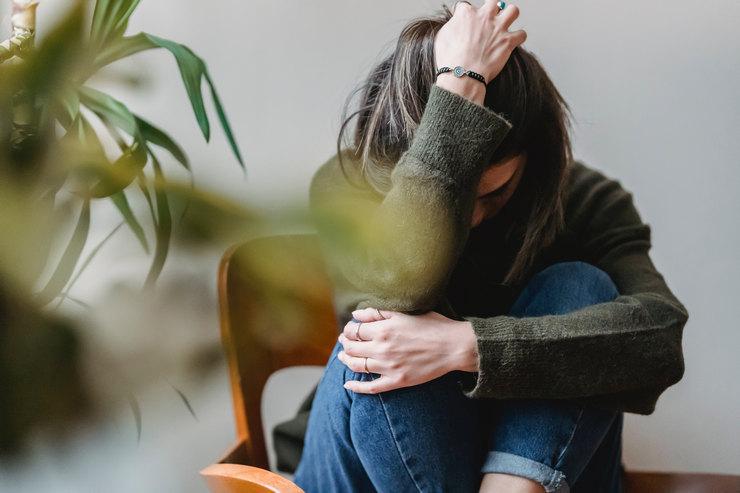Anxiety is one of the most common mental illnesses in the United States, affecting more than 18 percent of the population. If you’re one of the millions of people who live with anxiety, you know how debilitating it can be.
You may also know that anxiety is a complex condition that can be difficult to treat. This comprehensive guide provides an overview of the most common treatments for anxiety in adults. It includes information on therapies such as cognitive-behavioral therapy (CBT) and exposure therapy, as well as medications such as antidepressants and benzodiazepines.
If you’re looking for information on how to treat your anxiety, this guide is a great place to start.
Overview of Anxiety in Adults
Anxiety is a very real and prevalent issue for adults. It affects people of all ages and from all walks of life. But there’s good news: anxiety can be treated.
This guide will provide you with an overview of anxiety and its symptoms, as well as information on the various treatment options available to adults. You’ll learn about the different methods of therapy, medications and supplements that are available, and you’ll find tips on how to manage your anxiety on a daily basis.
Types of Anxiety Disorders
There are several different types of anxiety disorders. Some of the most common ones include:
- Generalized Anxiety Disorder (GAD): This type of anxiety disorder is characterized by excessive, uncontrollable worry about everyday things.
- Social Anxiety Disorder (SAD): People with SAD feel extremely anxious and self-conscious in social situations.
- Panic Disorder: People with panic disorder experience sudden and intense feelings of terror, often accompanied by physical symptoms such as chest pain, shortness of breath, or dizziness.
- Phobias: Phobias are irrational fears of specific objects or situations. Claustrophobia, for example, is the fear of being in small spaces.
If you think you might have an anxiety disorder, it’s important to talk to your doctor about it. Many anxiety disorders can be treated with therapy and medication.
Different Treatments for Anxiety
There are different treatments that work for different people. Some people prefer therapy, while others turn to medication. There are also a number of natural remedies that can help, like exercise, meditation or deep breathing exercises.
The important thing is to find the treatment that works best for you and stick with it. Don’t be afraid to ask for help from your doctor or therapist. They can help you find the best treatment for your needs and guide you through the process.
Medication Options for Treating Anxiety
Sometimes medication can be required to treat your anxiety, and it’s important to understand what options are available to you. The most common types of medications used in anxiety treatment are antidepressants, anti-anxiety medications, and beta blockers.
- Antidepressants: These medications work by increasing serotonin and norepinephrine levels in the brain, which help to reduce feelings of depression and anxiety. It’s important to note that these medications may take up to 8 weeks or more before they start working.
- Anti-anxiety medications: These medicines work quickly by decreasing muscle tension and calming down the nervous system. However, as with many other medications, there can be potential side effects such as drowsiness and dizziness.
- Beta blockers: This type of medication helps reduce physical symptoms of anxiety such as increased heart rate and sweating. It is usually prescribed when these physical symptoms have become disruptive or prolonged.
Non-Medical Interventions for Treating Anxiety
When it comes to treating anxiety, there are both medical and non-medical interventions. And if you’re looking for non-medical options, here are a few that have been proven to be effective in treating anxiety.
The first is cognitive behavioral therapy (CBT). This form of talking therapy helps you to understand your thoughts and behavior, and teaches how to better manage them. Through CBT, you can work on your thinking patterns to reduce stress and negative emotions related to anxiety.
Another option is lifestyle changes such as getting enough sleep, eating a balanced diet, exercising regularly, quitting smoking and reducing the amount of caffeine or alcohol. All these things can make you more resilient in dealing with anxiety. In addition, relaxation techniques such as mindfulness meditation and yoga can help reduce stress levels, helping you stay calm during anxious situations.
Finally, having a strong support system—friends and family who understand your fight against anxiety—can also help in facing difficult times during the healing process.
Mental Health Resources for Long-Term Relief
Ready to take the next step to managing your anxiety? It’s time to look into mental health resources that can help you cope with your anxiety in the long-term.
For starters, it’s important to find a qualified therapist who specializes in anxiety treatment. Talk therapy can be incredibly helpful in providing tools and strategies that can help you manage the physical and emotional symptoms of anxiety, as well as provide a safe space to talk through your worries and fears. Learn more about Anxiety Treatment For Adults here.
Relaxation techniques such as yoga, mindfulness, and meditation can also be beneficial in decreasing stress and calming your nerves. There are plenty of online classes or apps that provide guided relaxation exercises to help you manage your symptoms. Additionally, you can find support groups both online and in-person that provide a sense of community and connection with people who understand what you’re going through.
By exploring these mental health resources, you’ll be able to create a holistic approach to managing your anxiety for the long-term.
Conclusion
There are many ways to treat anxiety, and the best approach for you will depend on the type of anxiety you experience and the severity of your symptoms.
There are a number of different types of anxiety, including social anxiety, generalized anxiety disorder, and panic disorder. Each type of anxiety can be treated in different ways.
Some of the most common treatments for anxiety include medication, therapy, and self-help strategies.

